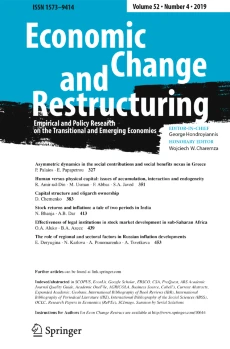The term “green recovery of the economy” is a term backed by the logical theoretical concept, and it is considering the development by minimizing the negative impact on the environment, and it is less political. Unlike sustainable development that considers all aspects of development, “green recovery of the economy” is more focused on the environment.
Five years after world leaders signed the Paris climate agreement, the global environmental crisis shows every sign of worsening, and global carbon emission is increasing. Several developed and developing economies are still following pro-coal energy policies. The extra CO2 generated by new coal-fired power plants could more than wipe out any reductions in emissions made by other nations. This could threaten the expansion of green energy needed to meet climate and clean air goals and threaten green development. (Sachs, 2019).
In the wake of the COVID-19 pandemic, the economic downturns resulted in plummeted oil prices due to low demand and oversupply, which pose stiff competition against renewables. Besides, globally many governments for stimulating economic growth rolled back environmental regulations and taxes and increased fossil-fuel intensive infrastructure and electricity. This will endanger the achievement of the Paris agreement on climate change and several sustainable development goals. Public budget deficits increased significantly due to increased medical costs to cope with COVID-19, and a decline in tax revenues caused by slower economic growth. It is keen to bring private sector financing into green energies much more than before to protect the world's environmental issues. To attract private sector investment into green energy projects, the rate of retrun from green projects has to be increased (Taghizadeh-Hesary and Yoshino, 2020). At the same time, green-adjusted taxing system in pollution gases would better be imposed globally.
As restrictions are easing and economies are opening, governments are beginning to unveil their economic recovery plans. However, there is a lack of motivation to strengthen the green agenda in recovery plans. This is because the recovery outlook seems to follow the ‘growth first and green it when possible' approach of existing development plans. Therefore, green recovery after COVID-19 is the key to reducing CO2 and other pollutions in the world. Against this backdrop, the practicability of green growth as the dominant strategy in tackling climate change, especially within a shortening time window, needs urgent rethinking (Sembiring, 2020).
Fiscal policy has an essential role in assuring the sustainable use of resources and keeping the environment. This applied to both sides of the government budget. In the revenue side, carbon taxation adjusted with greenness efforts and green floating rate bonds are two essential tools that their importance is increasing. Various fiscal measures could help green-specific priority sectors. Green adjusted tax on polluting gases can help generate revenue for environmental purposes and redirect the flow of investments from brown to green and low-carbon sectors by introducing green floating rate bonds.
With this background, This special issue aims to provide several empirical, theoretical, or case studies with practical policy implications on the role of Fiscal Policy Instruments and Green Recovery in the Post-Covid-19 era. The special issue of Economic Change and Restructuring aims to provide practical policy recommendations helpful in shaping policies on green growth in post-COVID-19, especially in less developed, developing, and emerging economies.
Papers may deal with, but not limited, to the following:
- Fiscal Policy Choices and the Implications for Green Recovery in the post-Covid-19 era
- Role of fiscal policy in green economic recovery
- Importance of fiscal policy matters for green development?
- Fossil fuel taxation adjusted with greenness
- Green fiscal policy reforms in practice
- Green Financial Instruments and Fiscal Incentives: Opportunities and Limitations
- Pollution tax adoption
- Green floating bonds and financial sector readiness
- Role of government in mobilizing green private financing and investment
- Fiscal incentives for green technology development
- Developing innovative green financial instruments
- Economic Impacts of Green Fiscal Policy
- Impact of green fiscal policy on economic recovery
- Impact of green fiscal policy on reducing poverty
- Role of green fiscal policy in economic restructuring in developing and emerging economies.
































